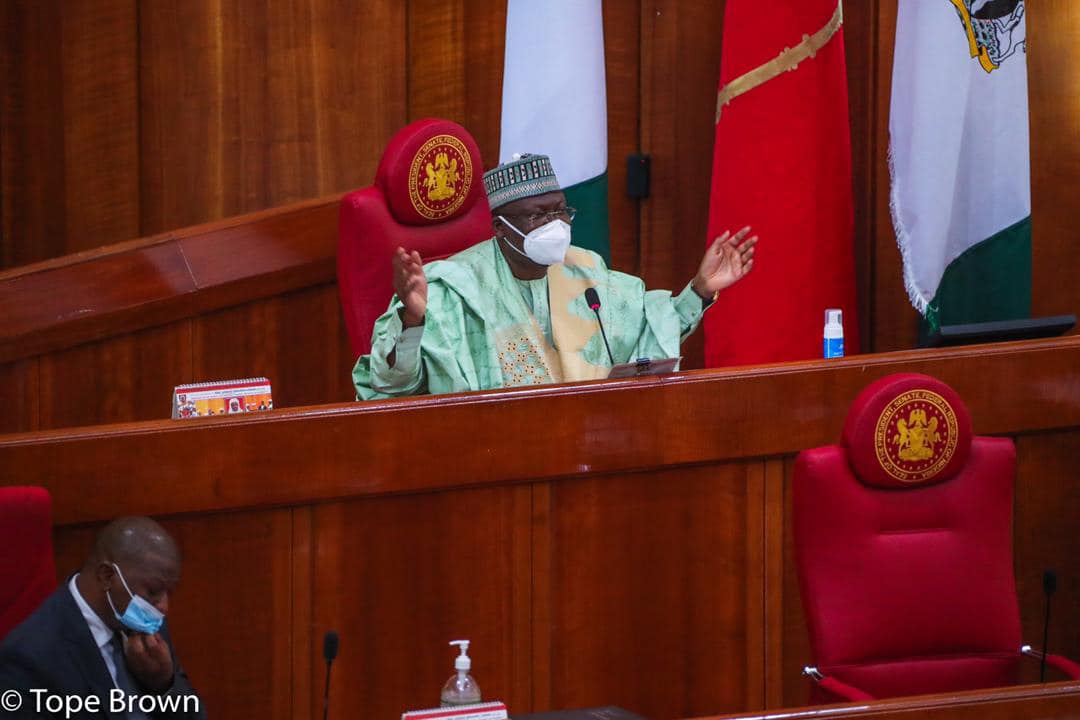The Senate Committee on Ethics, Privileges and Public Petitions has queried the Code of Conduct Tribunal, CCT, over its alleged inability to determine all corruption cases forwarded to it by the Code of Conduct Bureau, CCB.
Patrick Ayo Akinyelure, the chairman of the committee, said the agency is underperforming not only because of underfunding but also due its failure to effectively utilise all funds appropriated for it in the budget.
Speaking when the Chairman of the CCT, Danladi Umar, appeared before the committee to defend the agency’s 2022 budget estimates at the weekend, Akinyelure said: “The impact of the money given to you in not being felt. That’s why you have unspent balances of money that is not even enough.
“You must determine all the cases referred to you and let Mr President know that you are promoting his anti-corruption agenda.
“Your silence over the meagre allocation to your agency to fight corruption is not good enough for the government of President Muhammadu Buhari.”
N232 million was appropriated to CCT in 2021 out of which N174.2 million was released, according to the document submitted to the panel.
The document further showed that only N164.7 million was utilised, leaving an unspent balance of N9.45 million.
The CCT chairman, Umar, replied that only 30 cases had been concluded and determined out of the 257 referred to the Tribunal by the CCB this year.
He said: “257 cases were referred to us from CCB this year, out of which 57 had been treated. We have concluded and dealt with about 30 cases fully.”
He, however, blamed the agencies inability to speedily determine cases on underfunding and the fact that it is only the CCT that adjudicates on all CCB cases which are spread across the country.
“We have not been able to deal with all the cases referred to us due to underfunding.
“The CCT is only one body and we have to go to different places in the country. If we have other division of the Tribunal in the six geopolitical zones, it will reduce the enormity of our work here in Abuja. We cannot be everywhere,” he said.
Umar added that the agency could not utilise all the funds appropriated to it due to the cumbersome procurement processes.
Umar said, “The procurement procedures will have to be followed very diligently and due processes observed.
“We have to be above board in dealing with public funds in relation to the fact that we sit over and adjudicate matters like this.
“So we will not just go ahead and do things in spite of the fact that the money is with us.
“Though the money is too small but we have no choice other than follow the processes, which are cumbersome.
“That’s not to say that we don’t need much. We have reasons to ask for more funding because that will enable the CCT to effectively deal with matters before it, bearing in mind that CCT is only one in the whole of the country and supervises all public offices and officers. We really do have alot to do.”
He enjoined the Committee to come to the aid of the Tribunal, saying adequate funding and timely releases would enable the CCT to use all funds allocated to it and still follow the procurement procedures, its cumbersome nature notwithstanding.
The Chairman of the Committee responded saying the panel is not impressed with the activities of CCT because it could not effectively utilise its meagre allocation.
“Basically, the agency is underfunded by the executive arm of the government. That is not to say that the little amount appropriated and released to the Tribunal would not be spent.
“We have cried loud over the years but this has not been improved upon. Again, the agency is sleeping on its right,” he said.
He called on President Buhari to improve on the yearly appropriation for the Public Complaints Commission, Code of Conduct Bureau, and Code of Conduct Tribunal, whose mandate is to fight corruption, which is one of the cardinal goal of the present administration.
He also urged the CCT and CCB to seek the intervention of the President, saying, “Match to Mr President to improve your budget. For us, it is the envelope you are given that we will work upon.”
Source: The Nation







